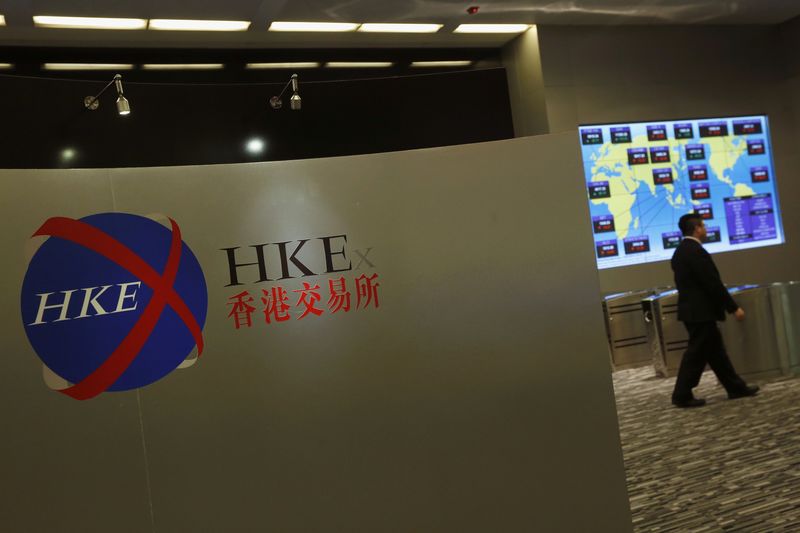This post was originally published on this site
https://i-invdn-com.investing.com/news/LYNXMPEB250CR_M.jpg
Investing.com– Most Asian stock markets rebounded from recent losses on Friday ahead of key U.S. inflation data, although fears of a global recession and rising interest rates put most regional bourses on course for weekly losses.
Hong Kong’s Hang Seng index was the best performer for the day, rising 1.7% amid growing bets that the city’s government will follow Beijing in scaling back anti-COVID measures.
The Hang Seng also vastly outperformed its Asian peers for a second consecutive week, rallying nearly 6%.
China’s blue-chip Shanghai Shenzhen CSI 300 index rose 0.2%, and was also set to end the week 2.6% higher, while the Shanghai Composite added 1.4% this week as China scaled back several COVID-related movement curbs and testing mandates.
The move ramped up hopes over a broader reopening in the world’s second-largest economy, as it faces increasing public unrest and worsening economic conditions.
But recent economic readings show that the country has a long road to recovery. Chinese inflation shrank further in November, as overall business activity contracted.
Other Asian bourses rose. Japan’s Nikkei 225 index added 1.2%, while the Taiwan Weighted index and South Korea’s KOSPI rose 1% and 0.5%, respectively.
Focus now turns to upcoming U.S. inflation data, which is expected to shed more light on the potential path of monetary policy.
The U.S. producer price index due later on Friday is expected to show that manufacturing inflation eased further in November. The reading is also likely to herald a similar trend in the consumer price index, which is due next week.
But markets are wary of any signs of inflation remaining sticky, which could invite more hawkish moves by the Federal Reserve. While the central bank is expected to hike rates by a relatively smaller 50 basis points next week, it has warned that rate hikes could continue for longer than expected in the face of stubborn inflation.
Such a scenario is negative for Asian stocks, which were battered by rising interest rates this year.
Technology-heavy bourses in Asia were the worst performers this week, as the sector was battered by warnings of a potential U.S. recession in 2023. The KOSPI and Taiwan Weighted indexes shed nearly 2% each this week.
Indian stocks were flat on Friday, with the Nifty 50 and BSE Sensex 30 indexes set for muted weekly performances as the Reserve Bank hiked interest rates and flagged more measures to combat high inflation.

